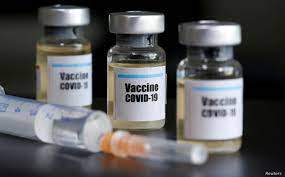The Next Pandemic - Are we prepared?
By Scott Tilley - ASCF Senior Fellow
April, 2021

The COVID-19 pandemic has exposed many shortcomings in our national infrastructure. There have been issues with public health policy, supply chain management, and long-term care homes. The underlying question is what we’ve learned from this experience and how it will help us deal with the next pandemic – which is a certainty.
The striking similarities between COVID-19 and the Spanish Flu epidemic of 1918 highlight how little society has learned in over one hundred years. Our modern response to COVID-19 has not been very different from the Great Pestilence of 1348, where the primary response was physical isolation – which we now call social distancing. How is it possible that we’ve not acquired new skills to cope with pandemics over all this time?
Our exit from the COVID-19 pandemic has been the development of potent vaccines. This is one thing we didn’t have in the past. In particular, the mRNA vaccines from Pfizer and Moderna have proven to be very effective. However, they are not without some side effects. I had the Pfizer jab, with a second shot three weeks later. I’m still suffering from terrible fatigue, which I attribute to the robust immune response the vaccine creates in your body, particularly in people with severe underlying health conditions (e.g., I have Type 1 diabetes).
There has been a development of “vaccine nationalism” across the world. This is driven by a lack of manufacturing capacity in many countries and a shortage of raw vaccine ingredients. For example, Canada can no longer can manufacture their own vaccine, so they are forced to import all its supplies from Europe. The largest manufacturer of vaccines is India. Even they are now experiencing the worst outbreak of COVID-19 anywhere, with more than 350,000 new cases every day and hospitals full and running out of basic supplies like oxygen. The scenes from their major cities are heartbreaking.
All of this leads to the question of preparedness for the next pandemic. This is not only a public health issue but also a question of national security. As bad as COVID-19 has been, it could have been much worse. A more virulent strain of the virus would have affected more of the population. The economy would have taken a harder hit. The societal implications would have been far more serious.
The origins of the SARS-COV-2 virus that are the source of COVID-19 are still the subject of discussion, but there’s little doubt that a manufactured version of a similar coronavirus would be a global disaster. Do we have the biological defenses in place to defend against such an outbreak? Do we have locally manufactured personal protective equipment (PPE) to protect our healthcare workers? Do we have sufficient vaccine manufacturing capacity to be able to vaccinate everyone in a timely manner? (That includes a national supply chain to provide all the necessary ingredients for the complex manufacturing process.)
COVID-19 has been called a once-in-a-century event, but our connected world is now much more susceptible to global outbreaks. International air travel means that viruses can cross continents in a matter of hours. Unless all borders are closed, there is little chance of blocking transmission from one country to another. Better rapid testing would undoubtedly help, but this is one area where we have not invested enough resources.
The costs of developing weaponized coronaviruses have also dropped significantly. This increases the chance of rogue nations or terrorist organizations releasing biological agents that can spread rapidly. We need to develop defensive mechanisms to keep this from happening because it’s inevitable that it will happen.
– END –




